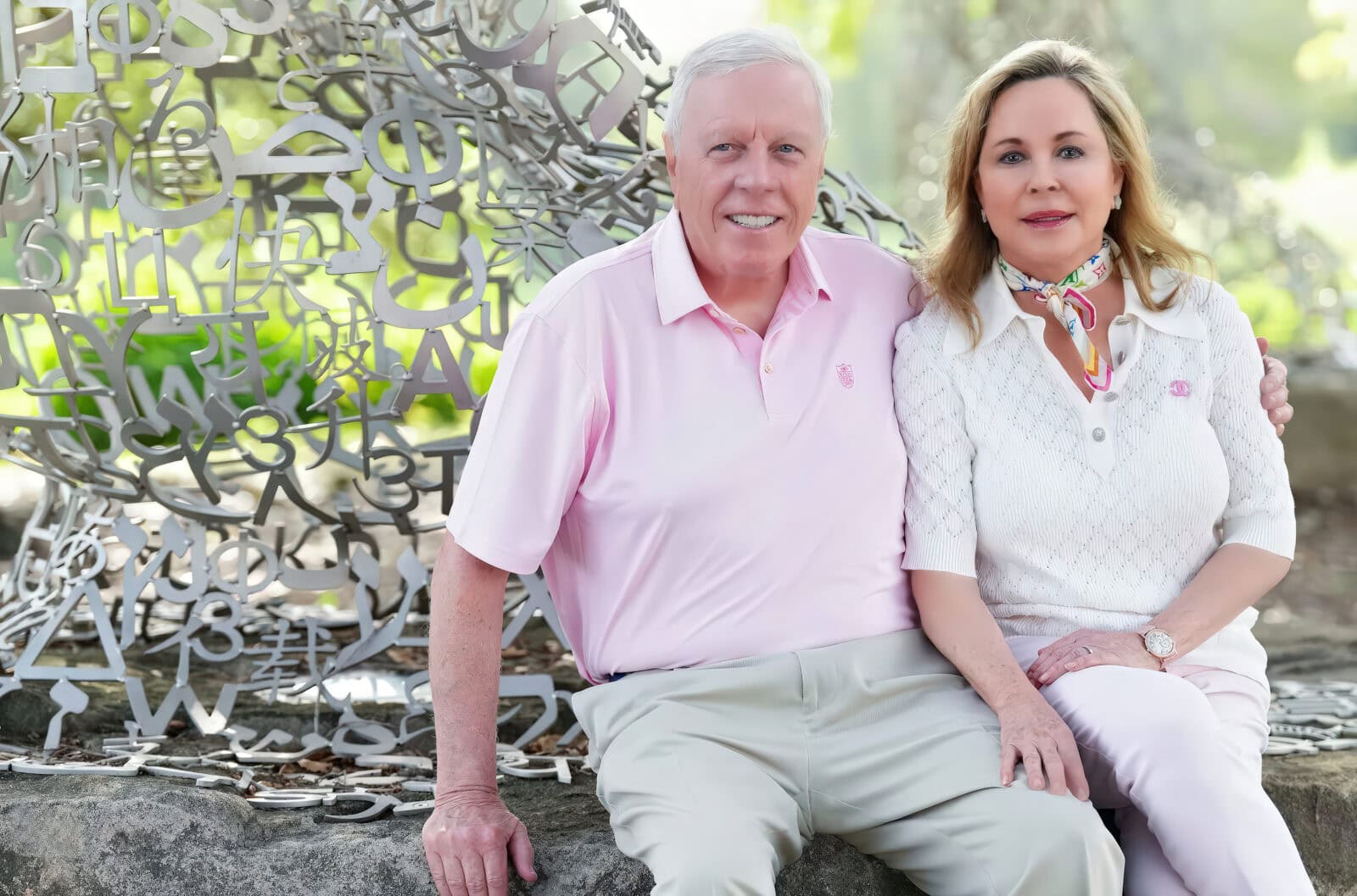$10 billion commitment from mega philanthropists Nancy and Rich Kinder aims to direct 95 per cent of their wealth to local charities

Houston billionaires Rich and Nancy Kinder have formally committed to giving away an astonishing 95 percent of their multi-billion-dollar fortune—equivalent to more than $10 billion—primarily to causes in greater Houston.
The announcement came in conjunction with their lead support for an $18.5 million expansion of Emancipation Park in Houston’s Third Ward, a historic park founded in 1872 by formerly enslaved people.
The Kinders, who founded the Kinder Foundation in 1997, signed on to the Giving Pledge—an initiative created by Bill Gates, Melinda French Gates, and Warren Buffett—in 2011, thereby vowing to donate the majority of their wealth to philanthropic causes.
Though the pledge generally asks signatories to give away at least half their fortunes, the Kinders deliberately chose a far higher target: 95 percent.
In their interview with Houston media, Rich Kinder said: “We’ve been very fortunate… whatever wealth you accumulate is the result of a lot of other people helping you along the way. And we just felt early on that the right thing to do was to try to give most or all of that away.”
Nancy Kinder added that they wanted their grandchildren “to be proud of us… and I want them to know that’s what we expect of them when they grow up. They have to give back, and it’s not all about us.”
Their philanthropic focus has been deliberately local and deeply rooted in Houston’s civic landscape. According to the Kinder Foundation website as of December 31 2024, the foundation has committed over $850 million in grants and distributed more than $621.4 million of that across projects in education, urban green space, and quality of life in the Houston area.
A 2024 feature by Houstonia magazine noted that, to that date, their giving exceeded $560 million, with major transformational gifts including approximately $82 million to the Kinder Institute for Urban Research at Rice University, $75 million to the Museum of Fine Arts, Houston, $70 million to the Memorial Park Conservancy, and $50 million to the Houston Parks Board’s Bayou Greenways project.
The newly announced $18.5 million expansion of Emancipation Park is part of this vision. The project includes a new outdoor performance stage, an enlarged cultural center, and other amenities, with the goal of completion in time for the Juneteenth 2026 celebration. The Kinders provided the lead funding through their foundation.
What stands out is the scale and consistency of the Kinders’ giving over decades.
From the founding of their foundation in the late 1990s to their long-term support of downtown parks (such as Discovery Green) and bayou-side greenways to major arts and education gifts, they have sought to make transformational rather than incremental contributions. In one past interview, Rich Kinder described their strategy: “We didn’t want to be a shotgun foundation that gives money here and everywhere. We wanted to be a rifle shot … if a project wouldn’t get done if we didn’t step in, then that’s transformational.”
The context of Houston is essential: The city historically has underinvested public funds in parks and green space, making private philanthropy particularly impactful. The Kinders have made green space a centerpiece of their philanthropy, arguing that livability, urban green corridors, park access and quality of life are vital to Houston’s future.
While the public announcement focuses on their pledge and the Emancipation Park expansion, the Kinders’ giving is far broader: in 2025 they contributed $150 million to launch the Kinder Children’s Cancer Center in partnership with Texas Children’s Hospital and MD Anderson Cancer Center.
The pledge to donate 95 percent of their fortune sets a very ambitious target. With a net worth reported around $11.2 billion according to Forbes’ tracker in the recent coverage, this would imply more than $10 billion in charitable giving over their lifetimes and/or through their estate.
They clearly view this not simply as occasional donations but as a legacy intentionally designed to reshape their home city and the lives of its residents.
One of the compelling aspects of their giving is its continued focus on Houston rather than being scattered globally. The Kinders’ rationale is that Houston “was good to us, so we wanted to put our money and efforts in Houston,” as Rich Kinder said.
And Nancy Kinder pointed out that their grandchildren see philanthropy as part of the family identity: “They have to carry it forward.”
Of course, even with such a huge commitment, questions remain about how the remaining endowment will be managed, how much is already pledged versus what remains to be given, how the foundation ensures the sustainability of its gifts over decades, and how Houston will maintain projects once funded.
The Kinders have made public that for their green-space commitments, they insist on long-term maintenance and operations plans before making major grants, ensuring the projects do not falter once construction is done.
In sum: Rich and Nancy Kinder are staking a bold philanthropic claim—pledging almost the entirety of their wealth to charity with a clear focus on their hometown.
Their foundation has already distributed hundreds of millions of dollars. With gifts such as the Emancipation Park expansion and the $150 million pledge for a pediatric cancer center, they are accelerating that commitment.
Their story raises broader questions about legacy, private philanthropy’s role in public infrastructure and civic life, and the extent of local impact from concentrated giving.

